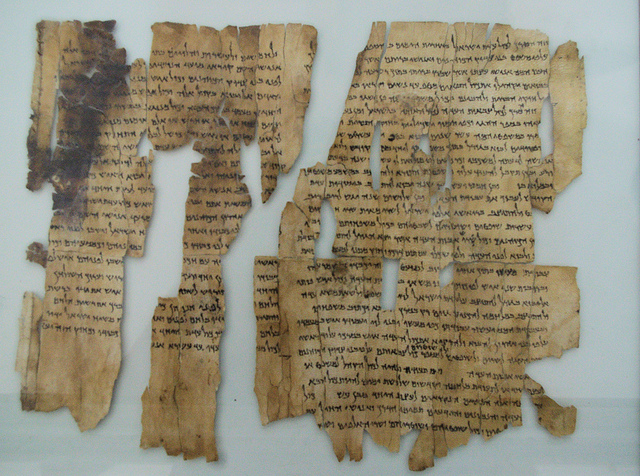What does is mean to ascribe strength to God?
To “ascribe” means “to attribute,” or “to regard one thing as originating from another.” In the same way we ascribe quotes, passages, or other creative works to their authors, we ascribe glory to God. To ascribe glory to God means to recognize that all the glory he has stirred up in our realm belongs to Him, and not to the creation itself. We do not praise a painting for its existence and beauty; we praise the artist who is wonderfully and mysteriously capable of conceiving such beauty, and delights in manifesting his imagination onto his canvas for the enjoyment of others.
After years of hearing this Psalm in different contexts, I have come to understand the idea of “[ascribing] to the Lord the glory due his name” (Ps 29:2a). But what does it mean to ascribe strength to God?
The amount of glory “due [God’s] name” is infinite. Any semblance of glory in this world belongs to and originates in Him. Of course, just as a beautiful painting can be warped and discolored by humidity and harsh sunlight, the glory and beauty from God in this world can be distorted and misused and exploited. But at its purest, and in its original form and context, God is truly the author of all glory, beauty, and strength.
The strength we must not ascribe to God
In the same way as glory, strength can be misused. In Psalm 29, David describes God’s use of strength in verses 10-11:
“The Lord sits enthroned over the flood;
the Lord is enthroned as King forever.
The Lord gives strength to his people;
The Lord blesses His people with peace.”
Although the Lord is capable of great wrath, we see in the Scriptures that He uses His wrath only against His enemies — against those who commit injustice. We also see Him defending the weak, not withholding his beautiful strength to His own imagination, but sharing it with the weak. God always uses His perfect strength in perfect conjunction with His perfect mercy.
As human beings, we often distort God’s strength and use it selfishly — rather than blessing others with it, we have used strength to curse. We see this in political strife and the struggle for power in the absence of equality. We see this in cases of physical, sexual, and psychological abuse, which are rampant as people look for control, intimacy, and strength through means that are contrary to God’s heart.
It is the distortion of pure and holy strength that we must not ascribe to God. For those who suffer at the hands of oppressive people or groups, there is peace in knowing that God does not have this same attitude. And if God, who truly owns all power, who could abuse it more than anyone, does not, how much more will He inflict wrath on the oppressor, and bring justice to every situation under the sun?
The strength we must ascribe to God
False attribution of strength can manifest in two ways:




